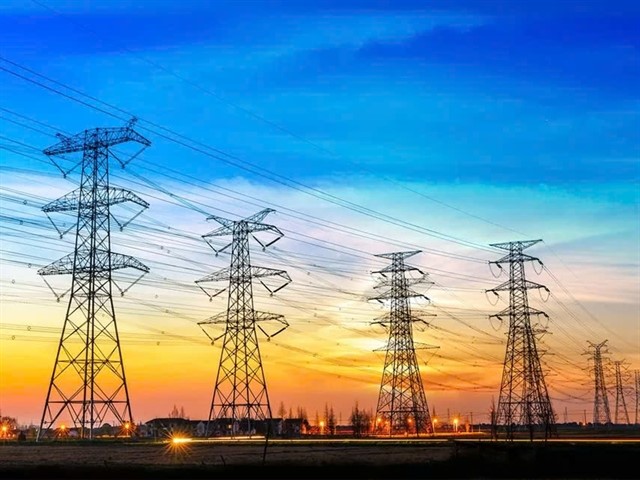To meet the electricity demand with a growth rate of about ten per cent each year, the annual investment volume in power sources and grids must reach US$7.6 billion.

Complicated and time-consuming investment and construction procedures are among the main reasons for the stagnation of urgent power projects, the Ministry of Industry and Trade's Electricity and Renewable Energy Authority has said.
The authority said that enterprises, especially State-owned ones and their subsidiaries find it difficult to implement power projects as multi-tiered procedures will directly affect the projects' progress.
For power projects using State capital, the overlap in regulations related to many laws from planning and investment to construction laws makes implementation more complicated. That will create significant barriers for investors.
Enterprises also face challenges in capital mobilisation, the authority noted.
To meet the electricity demand with a growth rate of about 10 per cent each year, the annual investment volume in power sources and grids must reach US$7.6 billion. That places a large financial burden on State-owned economic groups such as Việt Nam Electricity (EVN), Việt Nam Oil and Gas Group (PetroVietnam), and Việt Nam Industry Coal and Mineral Industries Group (Vinacomin).
From 2006 to 2020, the Government issued many decisions to accelerate the construction of urgent power projects. For example, Decision No 1195/QĐ-TTg in 2005 and Decision No 2414/QĐ-TTg in 2013 created specific mechanisms to shorten the preparation and implementation time of power projects, ensuring electricity supply for socio-economic development. These policies have created favourable conditions for putting important power projects into operation on time.
Since 2020, although the Construction Law has provisions for emergency power projects, the implementation of these projects has still encountered difficulties due to the lack of a clear legal corridor. The criteria for determining urgent energy security issues have not been specifically regulated, leading to difficulties in applying specific mechanisms for power grid projects.
Amended Electricity Law helps
According to the authority, the draft revised electricity law will have some provisions to speed up investment in emergency power projects.
Under the draft, the Prime Minister will have the right to decide on emergency power projects and assign State-owned enterprises as investors, except for projects using emergency public investment capital under the Law on Public Investment.
Emergency power projects will be exempted from procedures for in-principle investment approval and forest land use purpose conversion, except for those under the decision-making authority of the National Assembly. This helps shorten the time for enterprises to prepare investments and speed up the implementation of important projects.
Investors who implement emergency power projects will be offered many incentives, including government guarantees under the provisions of the Law on Public Debt Management and the right to make all decisions on construction activities.
Having been in effect for nearly 20 years, with four previous amendments, the Electricity Law still faces challenges that the current provisions have yet to fully address. Thus, experts have emphasised the importance of revising the law to align with the Party's energy policies and ensure consistency across the nation’s legal framework.
Economic expert Nguyễn Thường Lạng said two key aspects that should be prioritised in the new law are the integration of green standards and smart technology, as well as the updating of management benchmarks.
He underscored the necessity of restructuring the management framework to ensure the successful execution of significant electricity development initiatives, including Power Development Plan VIII, the National Energy Development Plan and the Politburo’s resolution on national energy strategy orientations.
Director of the Clean Energy and Green Growth Research Centre Hà Đăng Sơn said that clarity in legal regulations regarding bidding and auctions, as well as the specific responsibilities of investors in electricity projects, was essential. He also called for clear accountability to address risks and overcome legal obstacles.
The draft Electricity Law includes nine chapters and 119 articles, focusing on key areas such as ensuring national energy security, encouraging renewable energy development, fostering competitive electricity markets and improving safety regulations for electricity usage and infrastructure. — VNS





